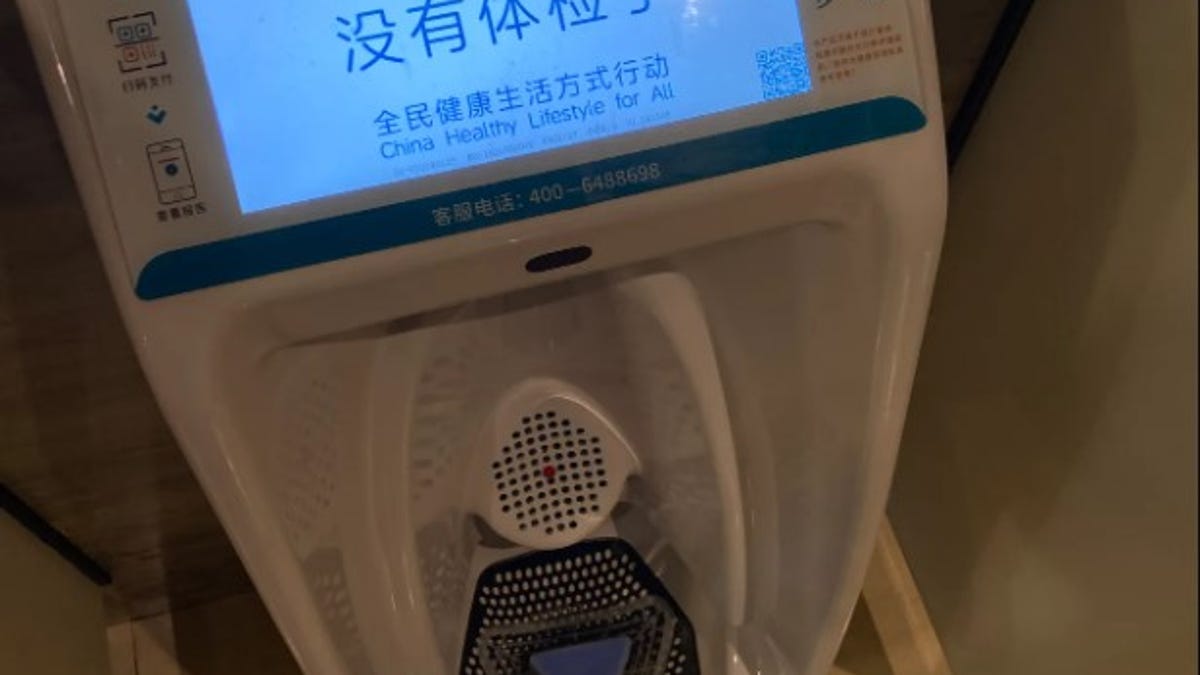
In a groundbreaking utilization of technology within public spaces, Shanghai has introduced an innovative health service aimed directly at the average consumer seeking a quick health update. Shanghai resident Chris Petersen-Clausen recently discovered this service during a visit to a shopping center’s public restroom, where he encountered a urinal equipped with a digital screen offering instant urine tests for a minimal fee of 19.90 Yuan (approximately $2.75).
This service, as Petersen-Clausen shared on TwitterX, raises questions about privacy given its Chinese origins, yet he emphasizes the unmatched convenience and the importance of regular health checks, which he personally had neglected for some time. What stands out is the simplicity of the process: after paying via WeChat and submitting some personal details, users receive comprehensive details about their chemical makeup, such as Vitamin C and nitrite levels, nearly instantaneously. Petersen-Clausen, a celebrated freelance cameraman and documentary director with an adventurous past, including travels with former NBA star Dennis Rodman to North Korea, received his results before he could even leave the building, learning he lacked calcium but was otherwise in commendable health.
The target demographic for this service appears to be individuals who typically avoid regular medical check-ups, such as the metaphorical chain-smoking forklift driver. The accessibility and immediate feedback provided by these urinal-testing stations could potentially save lives by encouraging more people to seek professional healthcare advice upon discovering health issues.
The innovation taps into a broader trend of leveraging technology to democratize health monitoring, making it more accessible to the masses. Just as wearable devices like Apple Watches have popularized health tracking among consumers, the urinal test embodies a similar spirit of convenience and immediacy, albeit with a focus on specific health markers.
However, this novel approach to public health monitoring is not without its concerns, particularly regarding data privacy and the accuracy and interpretation of results. While these tests offer valuable insights and potentially prompt users to seek further medical consultation, there remains a skepticism about the implications of entrusting sensitive health data to a public facility’s machinery, coupled with doubts about the tests’ capacity to detect more severe health conditions or illegal substances.
As technology continues to evolve and integrate into daily life, these urinal tests represent a fascinating intersection of health, privacy, and innovation. They suggest a future where routine health checks could become as commonplace and unintrusive as using a public restroom. Despite the potential benefits, the conversation around privacy, data security, and the role of technology in healthcare is more pertinent than ever, highlighting the need for a careful balance between innovation and the ethical handling of personal health information.
Source

/cdn.vox-cdn.com/uploads/chorus_asset/file/23905457/DSCF8502.jpg)






